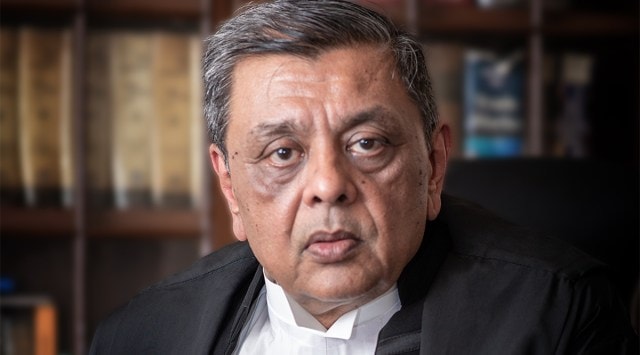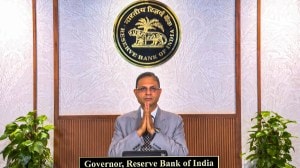Justice Patel: Striving for impartial police force a real struggle
In a landmark judgment, the Supreme Court in September 2006 had issued a series of measures for governments to ensure the police could do their work without worrying about any political interference.
 Justice GS Patel (Express File Photo)
Justice GS Patel (Express File Photo) Justice Gautam S Patel of the Bombay High Court Friday said that the 2006 judgement of the Supreme Court in the Prakash Singh case regarding police reforms was a “missed opportunity” with a “narrow approach”.
Justice Patel also said “striving for an impartial and independent” police force was a “real struggle”.
He was speaking at an event held at Nehru Centre in Mumbai by the Indian Police Foundation on its annual day and also raised questions over impatience of the general public in the process of law.
In a landmark judgment, the Supreme Court in September 2006 had issued a series of measures for governments to ensure the police could do their work without worrying about any political interference.
“…There is a much wider dialogue, a conversation, that we must have… Any talk of police reforms confined to the people in the formal police services is stripped of the much wider and more essential social context.”
Justice Patel said that citizen’s “view of the police, good or bad, is tied root and branch to our view of ourselves and the choices we make in how we choose to be governed” and it was not as easy to expect police not to be at the “back and call of political masters.”
He added, “The broad view of the police as bullies, corrupt and unaccountable is merely populist. The same thing can be said about almost anyone in public life… This is, therefore, not just a narrow view. It is a blinkered view.”
Justice Patel said when the public thinks that the courts are not doing its job, it celebrates wh-en the police steps in. He added, “We like to believe that acquittals are on the flimsiest grounds and that justice should be swift, righteous and without mercy.”
“Therefore when a rape accused is killed in an ‘encounter’ while allegedly trying to flee from an entire squadron of police, we think this is perfectly all right. Justice has been served.”
He said such a view is “pervasive” and is “strongly reflected in our popular culture” especially in Indian cinema. Justice Patel said the “impatience” could be due to how the “processes” are followed.
“More precisely, the processes by which we determine guilt or innocence. By definition, these processes are slow. They have to be. Because they hold as a cardinal principle that the liberty of the individual is not to be lightly confiscated.”
The judge said due to impatience, citizens overlook the aspect that “there is no substitute for this system” to have “fair” adjudication as per rule of law. “If we abandon this process and start taking shortcuts, we subvert the rule of law,” the judge said.
“….There are few other things as powerful, and as terrible in their power, as control over an entire police force. That power is not likely to be relinquished or ceded easily. And that is the real struggle, a sort of independence struggle of its own: striving for an impartial and independent police force, able to say, rank and file, no to a political demand, and always accountable and answerable only to the rule of law,” Justice Patel added.












